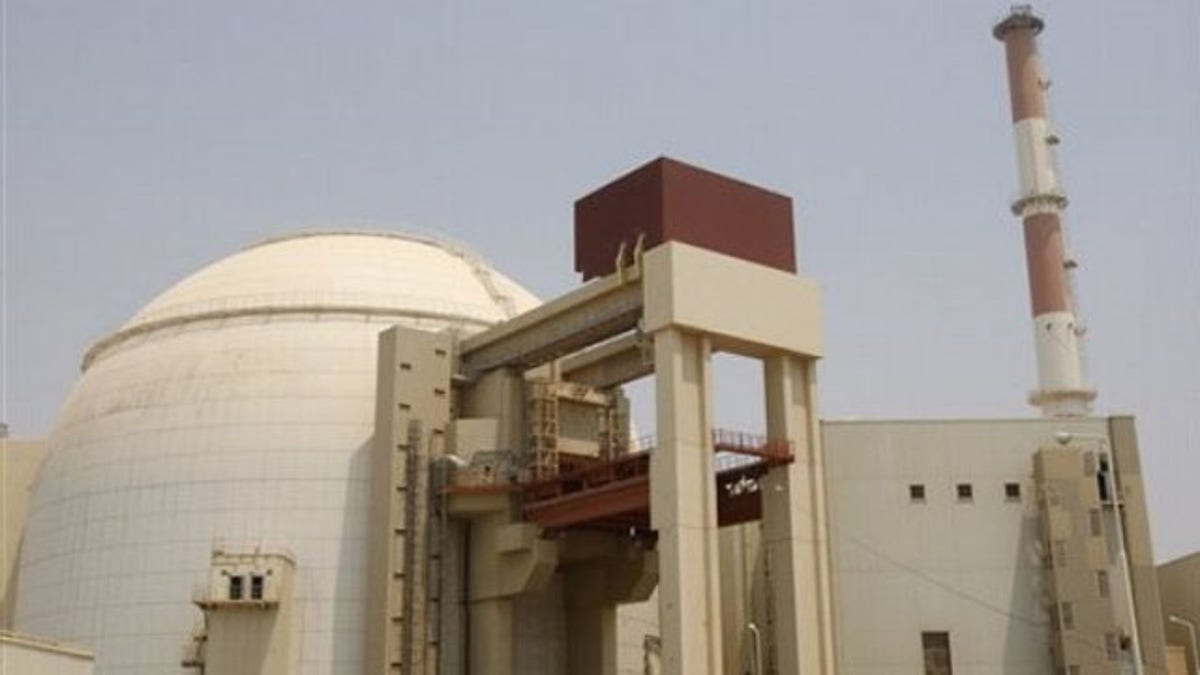
Aug. 21: The reactor building of Bushehr nuclear power plant, just outside the southern city of Bushehr, Iran. (AP)
TEHRAN, Iran – Iran's intelligence minister said the country has learned how to fight off a complex computer worm that some foreign experts have speculated was designed to target Tehran's nuclear program, state television reported Saturday.
Heidar Moslehi was also quoted as saying authorities have arrested several nuclear spies, but he gave no details and it wasn't clear if the developments were related.
Over recent months, the malicious Stuxnet computer code has also affected industrial systems in India, Indonesia and the U.S. But it has spread the most in Iran, including to several personal computers of workers at Iran's first nuclear power plant, which is to go online later this year.
The destructive Stuxnet worm has surprised experts because it is the first one specifically created to take over industrial control systems, like those at power plants, rather than just steal or manipulate data.
Moslehi did not reveal where or when the suspected spies were arrested, saying only that Iran has "always faced sabotage" by foreign intelligence services.
Iran periodically announces the arrest of nuclear spies without giving details.
The state TV report did not carry any remarks from Moslehi linking the arrests with the investigation into the computer worm.
"Iran's intelligence department has found a solution for confronting (the worm) and it will be applied," he was quoted as saying. "Our domination of virtual networks has thwarted the activities of enemies in this regard."
A week ago, Iran said the stuxnet code was found on several laptops belonging to staff at the Bushehr nuclear power plant but that the plant's main systems were not affected.
The plant has stood outside the current controversy over Iran's nuclear program since Russia will be providing the fuel for the plant and supervising its disposal.
But other aspects of Iran's nuclear work, especially its enrichment of uranium, are of concern to the United States and other world powers. Enrichment can be used to produce weapons as well as make fuel for power plants. Iran says it only has peaceful nuclear aims, such as generating electricity.
Who created the Stuxnet code and what its precise target is, if any, remains a mystery.
The web security firm Symantec Corp. says the computer worm was likely spawned by a government or a well-funded private group. It was apparently constructed by a small team of as many as five to 10 highly educated and well-funded hackers, Symantec says.
